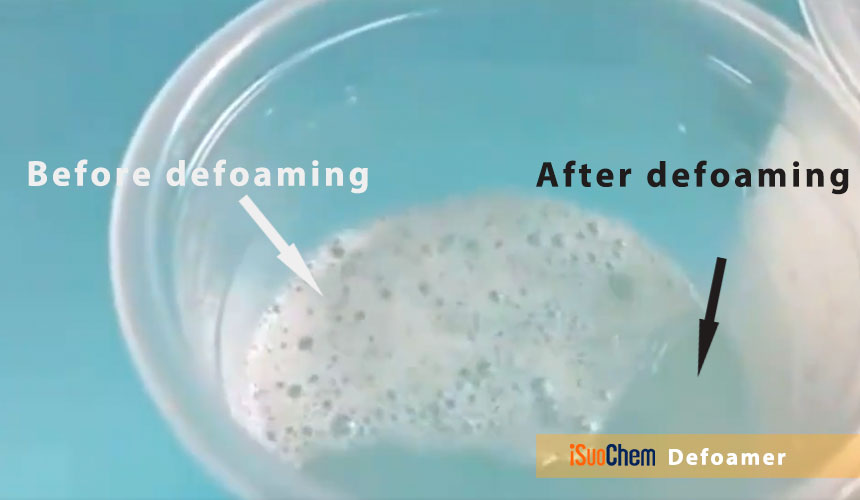The Role of Defoamers in the Chemical and Food Processing Industries
The Role of Defoamers in the Chemical and Food Processing Industries
Blog Article
The Duty of Defoamers in Enhancing Item High Quality and Performance
In numerous making procedures, the presence of foam can dramatically hinder product quality and functional efficiency. Defoamers offer as important additives that alleviate this concern, making certain smoother manufacturing process while improving the aesthetic and useful attributes of the final items (defoamers). Their application covers a plethora of sectors, from food and drink to pharmaceuticals, where consistency and integrity are extremely important. The option of the ideal defoamer can be important to accomplishing ideal results, increasing crucial inquiries concerning formulation compatibility and efficiency metrics that warrant additional exploration.
Understanding Defoamers
Recognizing the function of defoamers is important for preserving product top quality across different industries. Defoamers are chemical ingredients created to lower and prevent the development of foam in fluid systems, which can adversely influence procedures such as mixing, filling, and surface stress. Foaming can lead to ineffectiveness, item defects, and jeopardized aesthetic appeal, making defoamers a vital part in making operations.
In commercial applications, defoamers assist to boost item uniformity and stability. The effective use of defoamers not only ensures smoother manufacturing processes however also contributes to remarkable product performance.
Additionally, the option and solution of a defoamer should straighten with certain application requirements, such as compatibility with other components, performance under varying temperature and pH conditions, and possible regulatory constraints. Inevitably, recognizing defoamers' features and their relevance in various solutions is vital for maximizing manufacturing and making certain the best output.
Types of Defoamers
Defoamers can be categorized right into several kinds based on their structure and system of activity. The primary types include silicone-based, non-silicone natural, and not natural defoamers.
Silicone-based defoamers are amongst the most efficient, mainly as a result of their capacity to spread rapidly on the fluid surface and disrupt foam formation. Their unique chemical framework enables for superior stability, making them appropriate for high-temperature applications and settings with differing pH degrees.
Non-silicone natural defoamers, usually composed of fatty acids or natural oils, are valued for their biodegradability and reduced poisoning. These are usually used in food and beverage applications where safety and security and environmental effect are vital.
Inorganic defoamers, which consist of materials like talc or calcium carbonate, act by boosting the density of the liquid, thus reducing foam security. They are commonly utilized in commercial processes where compatibility with other products is not a problem.
Each kind of defoamer has unique benefits and limitations, enabling customized solutions relying on the certain frothing concerns come across in different applications. Comprehending these distinctions is critical for maximizing efficiency and achieving desired product top quality.
Applications Across Industries
Many markets take advantage of defoamers to improve item quality and functional performance. In the food and drink field, defoamers are essential in procedures such as brewing and dairy manufacturing to avoid foam formation, which can lead to ineffectiveness and item disparity. By controlling foam, suppliers can guarantee far better return and a more consistent item.
In the pharmaceutical sector, defoamers play a vital function in the formulation of liquid drugs, where excessive foam can restrain mixing and exact dosing. Their use aids keep the honesty of the solutions and helps with smoother production procedures.
The paint and coatings sector likewise counts on defoamers to boost the performance of items during application. By reducing foam, these additives guarantee a smoother finish and boost the aesthetic top qualities of the last item.

Benefits of Utilizing Defoamers
While the application of defoamers differs throughout markets, their advantages consistently boost product top quality and procedure efficiency. One significant advantage is the decrease of foam development during making processes, which can or else lead to manufacturing hold-ups and incongruities in item high quality. By lessening foam, defoamers enable a smoother flow of products, assisting in extra efficient procedures and minimizing the probability of tools breakdowns.
In addition, the use of defoamers can boost the appearance and texture of end products. In fields such as finishings, paints, and food handling, extreme foam can jeopardize the why not find out more visual aesthetics and total high quality, while the ideal defoamer application guarantees an uniform coating and preferable attributes. Additionally, defoamers can add to cost financial savings by lowering waste during production and maximizing the usage of resources (defoamers).

Choosing the Right Defoamer
Picking the appropriate defoamer is crucial for enhancing manufacturing processes and making certain item quality. The option of defoamer influences not just the performance of foam control yet additionally the general performance attributes of the final product. Factors to consider include the kind of application, the chemistry of the formulation, and the environmental conditions under which the item will certainly be made use of.
Different industries might need particular defoamer kinds, such as silicone-based, organic, or polymeric defoamers. Recognizing the compatibility of the defoamer with the main ingredients is vital to avoid adverse reactions that can compromise product integrity. Furthermore, the defoamer's effectiveness in various temperature levels and pH degrees should be assessed to ensure constant efficiency.
Examining the defoamer in small applications can provide valuable insights into its performance and viability. Consideration of governing compliance, especially in food, drugs, and cosmetics, is vital in selecting a defoamer. Eventually, a comprehensive assessment of these aspects will result in the selection of a defoamer that not just regulates foam effectively however likewise boosts Recommended Site the quality and efficiency of the end product.
Conclusion

In verdict, defoamers are important ingredients that dramatically boost product top quality and efficiency throughout various industries. The tactical choice and application of defoamers lead to set you back financial savings, maximized resource usage, and raised customer fulfillment.
Foaming can lead to ineffectiveness, item defects, and compromised visual allure, making defoamers a crucial element in producing operations.

Report this page